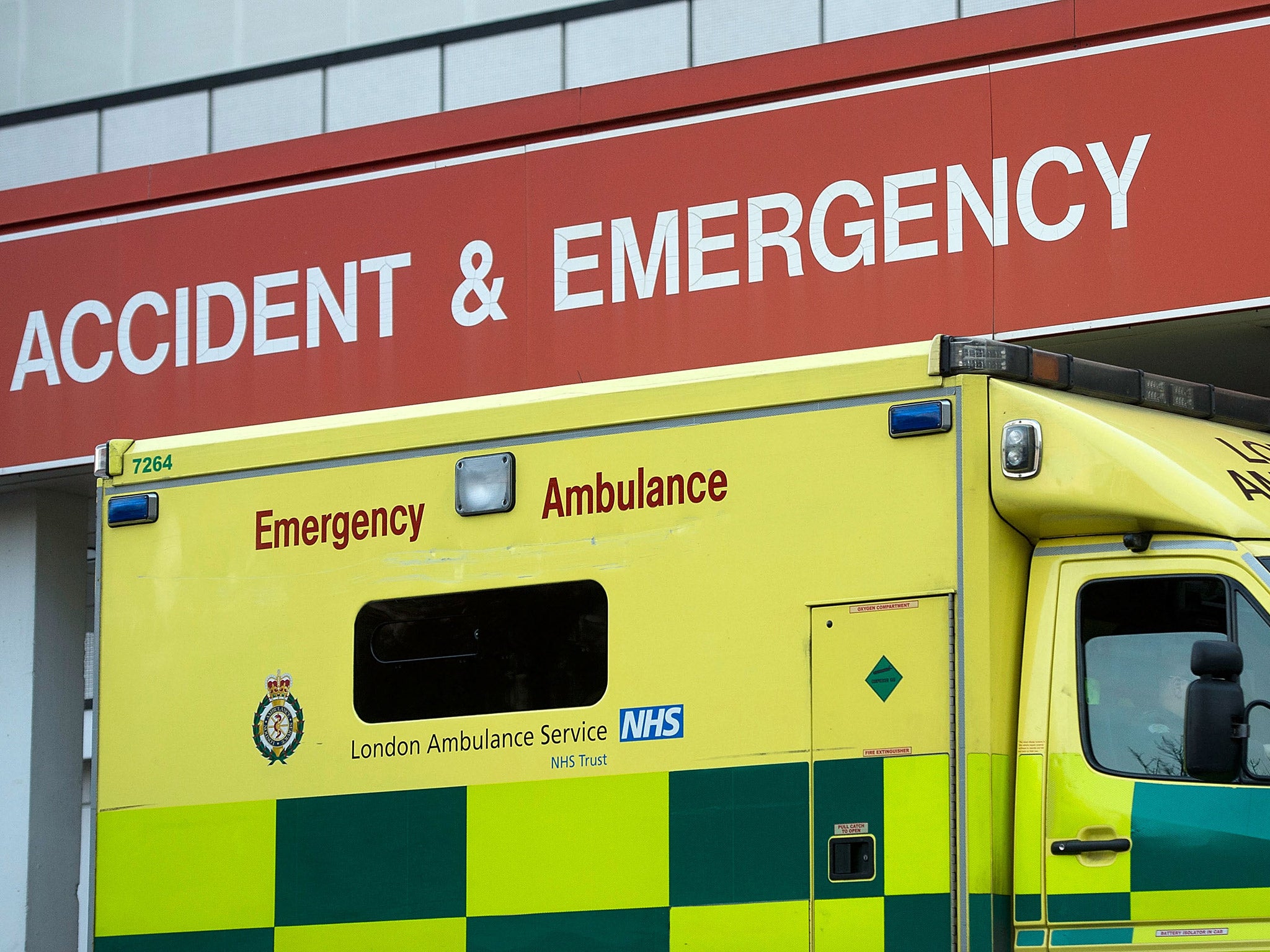Ambulance urgent response time targets missed every month since shake-up, figures show
Figures show health system is 'buckling', say Labour

Your support helps us to tell the story
From reproductive rights to climate change to Big Tech, The Independent is on the ground when the story is developing. Whether it's investigating the financials of Elon Musk's pro-Trump PAC or producing our latest documentary, 'The A Word', which shines a light on the American women fighting for reproductive rights, we know how important it is to parse out the facts from the messaging.
At such a critical moment in US history, we need reporters on the ground. Your donation allows us to keep sending journalists to speak to both sides of the story.
The Independent is trusted by Americans across the entire political spectrum. And unlike many other quality news outlets, we choose not to lock Americans out of our reporting and analysis with paywalls. We believe quality journalism should be available to everyone, paid for by those who can afford it.
Your support makes all the difference.Ambulance response time targets have been missed for urgent calls in every month since new standards were introduced last year, an analysis of NHS figures has found.
The average response time for life-threatening 999 calls has exceeded NHS England’s seven-minute target every month following an overhaul of the system in July 2017.
The Labour Party, which analysed the figures, said the findings showed the health system was “buckling” under “intense strain”.
Last year, in a shake-up designed to ensure the most critical cases were prioritised, the NHS scrapped the blanket eight-minute response time target in favour of a two-tier system.
Paramedics are expected to arrive at life-threatening emergencies, or category 1 calls, within seven minutes. Less serious urgent call-outs are designated as category 2, which have a target of 18 minutes.
The average response time for category 1 calls in the first 11 months of 2018 was seven minutes and 43 seconds, according to Labour. Last month the average was seven minutes and 11 seconds, the fastest this year.
For category 2 incidents, the average response time so far this year is 21 minutes and 56 seconds. In November 2018, it was 21 minutes and 17 seconds.
Neither category's target has been met in any month since the new system was implemented.
Shadow health secretary Jonathan Ashworth said: “These figures show the intense strain that many ambulance trusts are under with targets to respond to the most seriously ill patients being missed month after month. It’s simply unacceptable. Let’s be clear, this is putting patients safety and lives at risk and its more evidence that after years of Tory austerity, cuts and staff shortages the whole NHS system is buckling.”
An NHS England spokeswoman said: “Anyone in a life-threatening situation is treated as a priority and response times to the most seriously ill and injured patients have never been better, with an extra £36 million funding to help areas deliver even more improvements. People who have serious conditions but which are not life-threatening, like animal bites and burns, also receive emergency attention and are taken to the most appropriate service to deal with their condition.”
Following last year’s shake-up, 999 call handlers are given more time to assess category 2 cases – which can involve heart attack and stroke patients – and determine the most appropriate response.
According to separate figures obtained by the Daily Mail, patients involved in 157,000 emergency cases have waited longer than an hour for an ambulance since the new system was introduced.
NHS England said the system had been approved safe by academics and health experts and could save up 250 lives a year.
The Department of Health has been approached for a comment.
Join our commenting forum
Join thought-provoking conversations, follow other Independent readers and see their replies
Comments